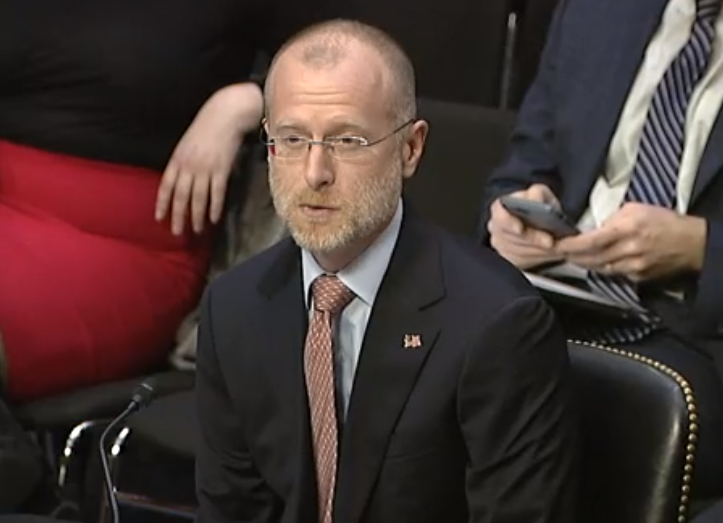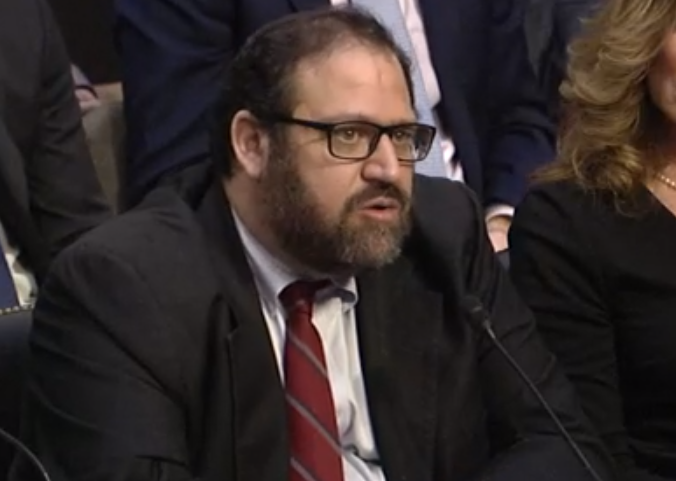Tired Senators Tackle 5G Jobs Issues
The smarter way to stay on top of the multichannel video marketplace. Sign up below.
You are now subscribed
Your newsletter sign-up was successful
Before they parked their broadband devices in the cloakroom and themselves in the Senate chamber for day two of impeachment hearings, tired members of the Senate Commerce Committee took up the issue of broadband deployment and a potential 5G labor shortage.

That was in a hearing on "The 5G Workforce and Obstacles to Broadband Deployment" and how they could impact winning the race to 5G.
Committee chairman Roger Wicker (R-Miss.) joked that the accolades continued to pour in over his decision not to postpone the hearing--which began at 10 a.m.--despite the fact that day one of the impeachment trial went until almost 2 a.m. To be fair, Chief Justice John Roberts, who is presiding over the trial, also had to be back at work at his High Court day job Wednesday (Jan. 22) for oral argument before returning to impeachment duties at 1 p.m.
Wicker said the hearing was about important economic and workforce readiness issues related to 5G nets, which he said would transform virtually every industry. He said as goes the communications infrastructure so goes the future of all the new tech it makes possible.
Among the witnesses was FCC commissioner Brendan Carr, who has been deputized by FCC chair Ajit Pai to deal with broadband wireless buildout issues and speeding those buildouts, including workforce issues as well as streamlining small-cell permitting and pole attachments, something Wicker said was helping speed broadband buildouts.
Carr said securing a 5G workforce was just as important as securing spectrum for next-gen wireless.
Carr launched a 5G jobs initiative last year focused on a shortage of tower climbers and telecom technicians. He said getting the right policies in place will make all the difference.
The smarter way to stay on top of the multichannel video marketplace. Sign up below.
He argued that the FCC's efforts to streamline buildouts as reaped "remarkable results," including internet speeds that were up 70% in only two years and a narrowing digital divide.
He suggested the FCC's policies were a winning streak that needed extending, but that a consequence of that success was 20,000 job openings for tower climbers and techs for 5G. "These are good-paying jobs, too," he told the senators. "hey do not require an expensive four-year degree. And they are 5G jobs that can help lift thousands of American families up into the middle class."

Harold Feld, SVP at Public Knowledge, agreed with Carr that there was a need to fill the job shortage gap, but he emphasized looking beyond the short-term deficits. "[B]ecause demand is cyclical, the short-term demand generated by the need to build out 5G infrastructure does not ensure long-term employment for workers," he said in his testimony. "As a consequence, programs designed to meet the shortage of tower workers need to look not merely to training and safety,5 but also to guaranteeing to tower workers a productive future after the current boom subsides." Carr said they were jobs with a future and career track.
But as to Carr's suggestion that the FCC's deregulatory "streamlining," including preempting some state and local restrictions on tower citing, was the right approach, Feld was not in agreement.
"Congress should ignore the claims of wireless networks that without further preemption of local authority America will “lose the race to 5G," he said. "To the contrary, by giving carriers free reign over local deployments, we will see large swaths of urban and rural America cut out of the 5G future entirely."
Contributing editor John Eggerton has been an editor and/or writer on media regulation, legislation and policy for over four decades, including covering the FCC, FTC, Congress, the major media trade associations, and the federal courts. In addition to Multichannel News and Broadcasting + Cable, his work has appeared in Radio World, TV Technology, TV Fax, This Week in Consumer Electronics, Variety and the Encyclopedia Britannica.

